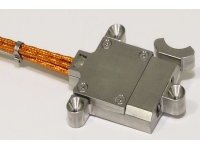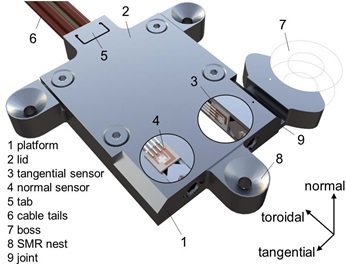The ITER Final Design Review held during the second week of December in Cadarache, France, assessed the finalized design of the outer-vessel steady-state magnetic field Hall sensors.
The sensors developed by the Institute of Plasma Physics (IPP) have been approved for use in ITER, and after incorporation of a few recommendations of the evaluation panel, it will be possible to start their production. The sensors should be delivered to ITER in the middle of 2019.
IPP is developing the Hall sensors resistant to high temperatures and radiation exposure based
on metallic materials in collaboration with the ITER International Fusion Energy Organization, the
Institute of Physics of the CAS and other scientific institutions from the Czech Republic. The Hall sensors are designed for absolute measurement of the
steady-state magnetic field of the ITER reactor, and they will contribute to the measurement
of the plasma current, plasma-wall clearance, and local perturbations of the magnetic flux surfaces near the wall.
Three vacuum vessel sectors in ITER will be instrumented by the outer-vessel steady-state magnetic field sensor units. Each sensor
unit contains a pair of the Hall sensors with a bismuth sensing layer to measure tangential and
normal components of the magnetic field. The sensor operating temperature will be 90 -
110°C, and the temperature will reach up to 220°C during the vacuum vessel bakeout. The lifetime neutron fluence will reach 1.3x10
22 n/m
2.
Photo: IPP.
13 Dec 2016













